Don't miss our holiday offer - up to 50% OFF!
Anlotib 12 mg (Anlotinib)
Anlotib 12 mg is a pharmaceutical product of Anlotinib, a new oral multi-targeted tyrosine kinase inhibitor ( TKI), substantially used for the treatment of various advanced cancers. It has surfaced as a promising targeted remedy, particularly for non-small cell lung cancer( NSCLC), soft tissue sarcoma, renal cell carcinoma, and certain other excrescences. Developed by Chia Tai Tianqing Pharmaceutical Group, Anlotinib has gained favorability due to its broad anti-tumor activity and safety profile.
Medium of Action
Anlotinib inhibits several receptor tyrosine kinases (RTKs) involved in angiogenesis (the development of new blood vessels that supply the excrescence) and excrescence growth. Specifically, it targets
Angiogenesis is inhibited by VEGFR (Vascular Endothelial Growth Factor Receptor) 1, 2, and 3.
FGFR (Receptor for Fibroblast Growth Factor) 1–4
The platelet-derived growth factor receptor, as well as PDGFR,
C- tackle
Ret and others
By blocking these RTKs contemporaneously, Anlotinib disrupts multiple signal pathways that excrescences use to grow, foray, girdle, and spread. Thus, it may be effective indeed in cancerous excrescences with resistance to other curatives.
Indications
Anlotib 12 mg is generally specified for
When previous chemotherapy or targeted treatment has failed or is intolerable, advanced non-small cell lung cancer (NSCLC) is generally used as a third-line treatment.
Soft Tissue Sarcoma (STS), especially if the disease is metastatic or not curable.
Renal Cell Melanoma( RCC)
Medullary Thyroid Melanoma
Other Solid Excrescences include colorectal cancer, esophageal cancer, and others.
Dosage and Administration
The recommended cure of Anlotib is 12 mg orally once a day, generally for 2 weeks on and 1 week off in a 21-day cycle. The cure can be adapted based on the case’s severity, response to remedy, and side effects.
Take the capsule with water, preferably at the same time every day. Don’t crush or bite the capsule.
Side Effects
As with any of the cancer specifics, Anlotib 12 mg has side effects, although not everyone will develop them. They include
Hypertension( high blood pressure)
Fatigue
Hand- bottom pattern( palmar- plantar erythrodysesthesia)
Diarrhea
Loss of appetite
Elevated liver enzymes
Proteinuria
Mouth blisters
Severe adverse events are less common but may be hemorrhage, cardiac issues, or extensive liver damage. Cases will bear close monitoring with blood tests, blood pressure checks, and imaging studies.
Preventives and Warnings
Gestation and Lactation: Not indicated in gestation or lactation, as it can be dangerous to the fetus or child.
medicine relations: Caution in other medicines metabolized by the liver, especially with CYP enzymes.
Cardiac History Use in cases with heart complaints is to be under close observation.
Conclusion
Anlotib 12 mg represents a significant jump in precision oncology. Being suitable to cut off multiple paths pivotal to the development of cancer, it’s an adaptable drug for cases who have advanced cancer with limited options. With decreasingly further clinical trials afoot, extending its use, Anlotinib is in the limelight as the focus on precision oncology continues.


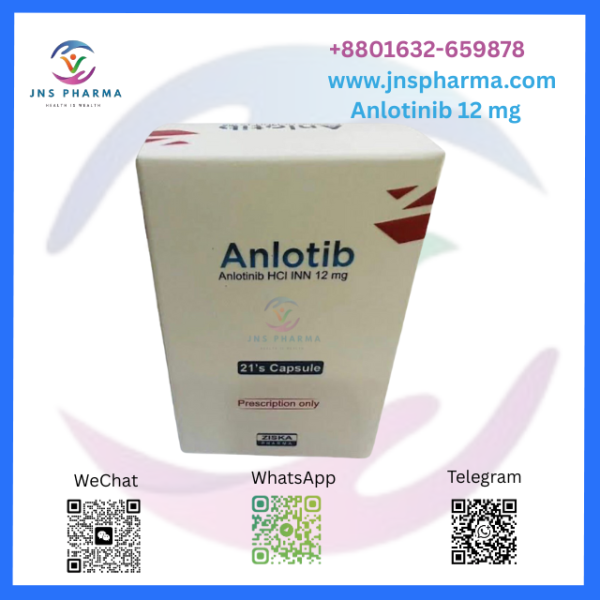
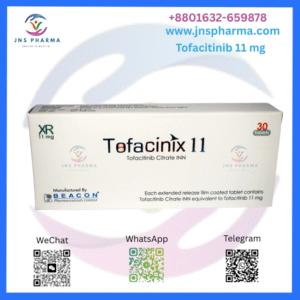
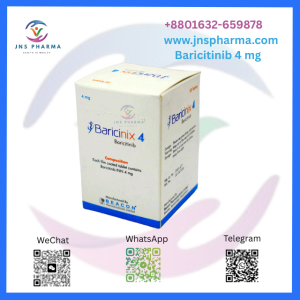
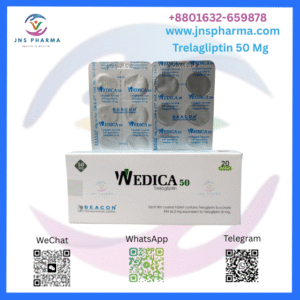
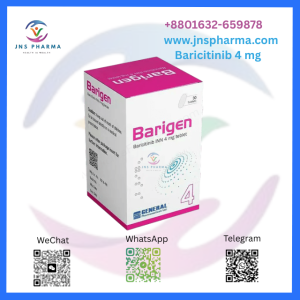
Reviews
There are no reviews yet.